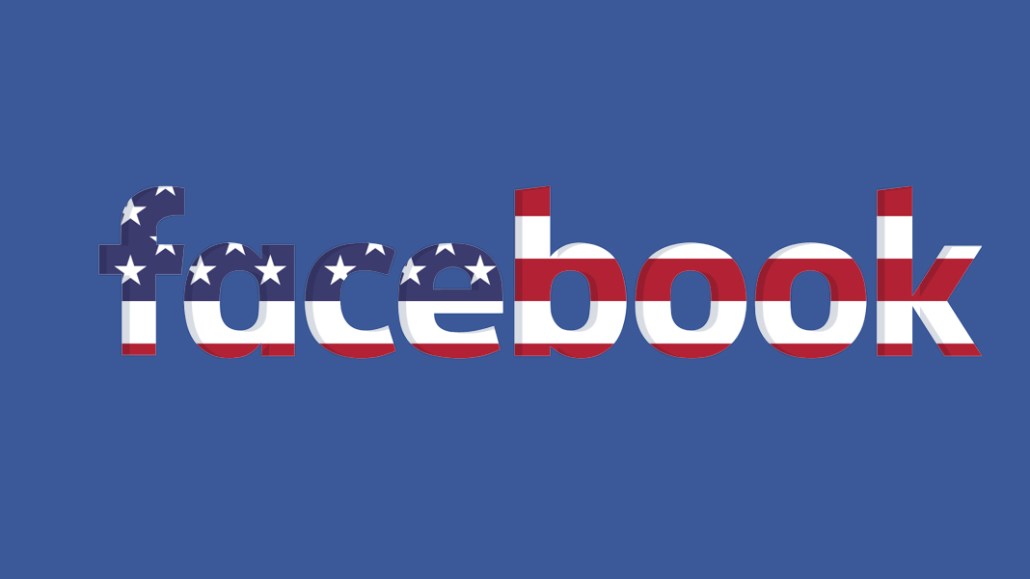Secure your place at the Digiday Media Buying Summit in Nashville, March 2-4
‘Taking a bite’: Major political and news headlines are sucking up all the oxygen on Facebook

In the home stretch of any presidential election season, it sometimes seems like there is no time or space to discuss other stories. Throw in a lingering pandemic, a resurgent uproar over racial injustice and burning reminders of climate change, and some publishers are feeling crowded out on Facebook.
Over the past few months, an abundance news and political content — and political ads — has cut into the referral traffic for some publishers, particularly those focused on lifestyle and entertainment content. Clark Benson, the CEO of Ranker, said that Facebook referral traffic to his entertainment and pop culture sites Ranker and Watchworthy, which is delivered across 30 different pages with close to 48 million Facebook fans, has been down about 12% since July, with the drop much more pronounced among Ranker’s U.S. pages than its international ones.
Melissa Chowning, the founder of audience development consultancy Twenty First Digital, said referral traffic from Facebook was down for 16 of her firm’s 18 clients, which range from Foreign Affairs to Philadelphia Magazine, by an average of 39% from late June to late September.
“The election campaigns are really just taking a bite,” Chowning said, adding that publishers with large audiences in swing states have been especially vulnerable.
In a year when coronavirus has battered most publishers’ businesses, the drop was even more unwelcome for another reason: It has forced some publishers to spend more money to distribute their content using ads, right at a moment when political advertising dollars are pouring into Facebook: Close to $952 million is expected to be spent on political ads on platforms this election season, according to Kantar.
“I have some clients who have audience minimums they have to hit every month,” said Chowning. “I’ve told them they’re just going to have to spend a little more in this area.”
Politics content has historically dominated Facebook from a referral traffic standpoint. According to the analytics service Parsely, the only time that content classified as Law, Government and Politics did not drive the greatest share of referral traffic was earlier this spring, when news about the spreading coronavirus captivated the entire country, Parsely data insights lead Kelsey Arendt said.
Over the summer, Law, Government and Politics referral traffic dominated again, rising as high as 29% of referral traffic in some weeks, Arendt said. Lately it has begun to come down. In the past two weeks, that category accounted for 23% of referral traffic on Facebook. News rose to second place, accounting for 9%, Arendt said.
The top ten content categories on Facebook only account for about 60% of the referral traffic Facebook sends to publishers, with the remaining 40% spread out across more than 300 different content categories, each of which account for under 1% of the platform’s referral traffic, according to Parsely analysis.
That means surges in top categories can sometimes crowd out those smaller categories, especially those that target audiences in swing states But with so many different things influencing what appears in Facebook’s newsfeed, some publishers have given up on trying to figure out the root cause.
“We don’t even bother worrying about why something is causing a change,” Ranker’s Benson said. “We just go back to our tactics toolbox and say, ‘Maybe we should try more image-friendly posts.’”
More in Media

From feeds to streets: How mega influencer Haley Baylee is diversifying beyond platform algorithms
Kalil is partnering with LinkNYC to take her social media content into the real world and the streets of NYC.

‘A brand trip’: How the creator economy showed up at this year’s Super Bowl
Super Bowl 2026 had more on-the-ground brand activations and creator participation than ever, showcasing how it’s become a massive IRL moment for the creator economy.

Media Briefing: Turning scraped content into paid assets — Amazon and Microsoft build AI marketplaces
Amazon plans an AI content marketplace to join Microsoft’s efforts and pay publishers — but it relies on AI com stop scraping for free.








